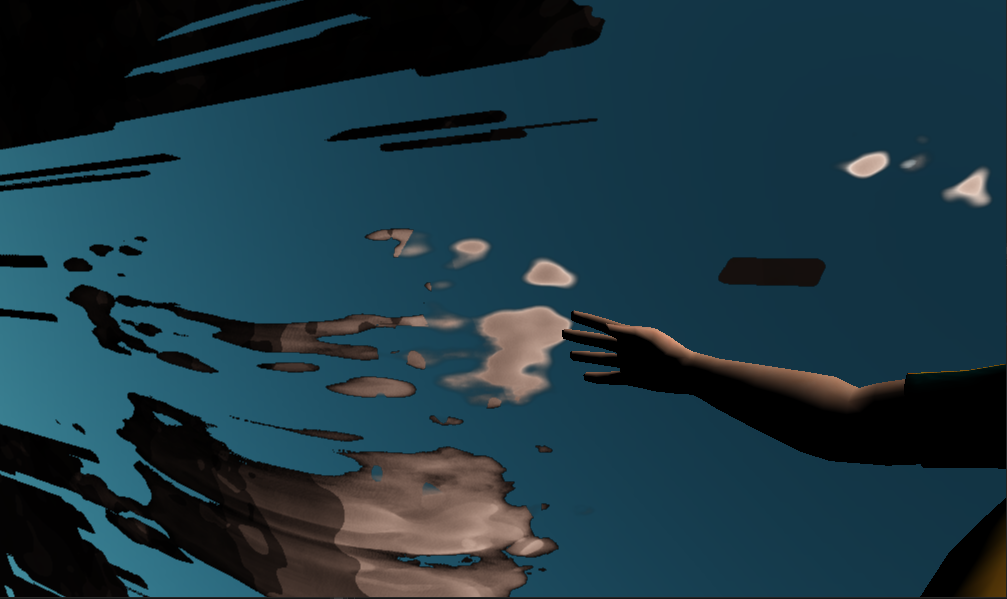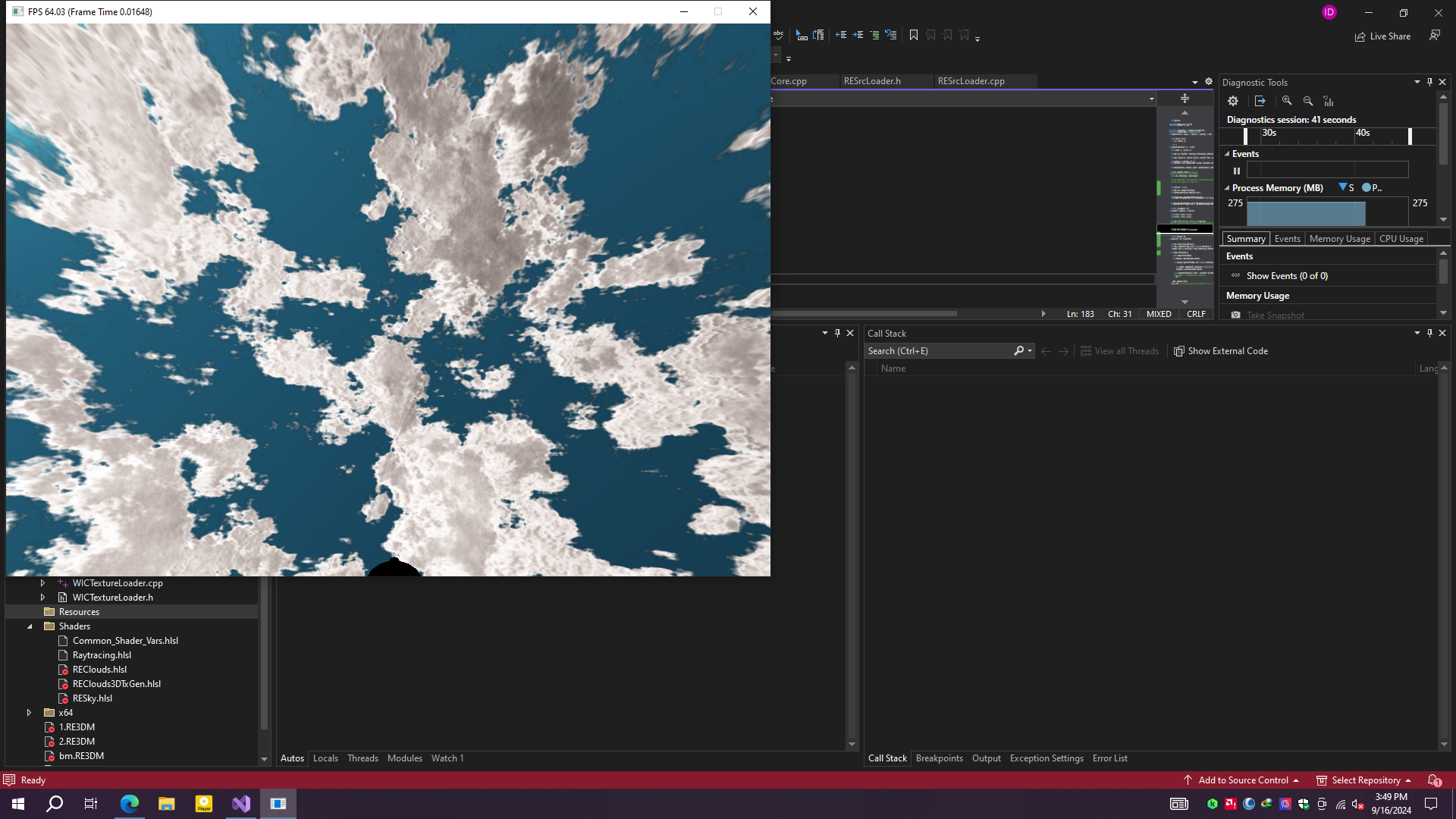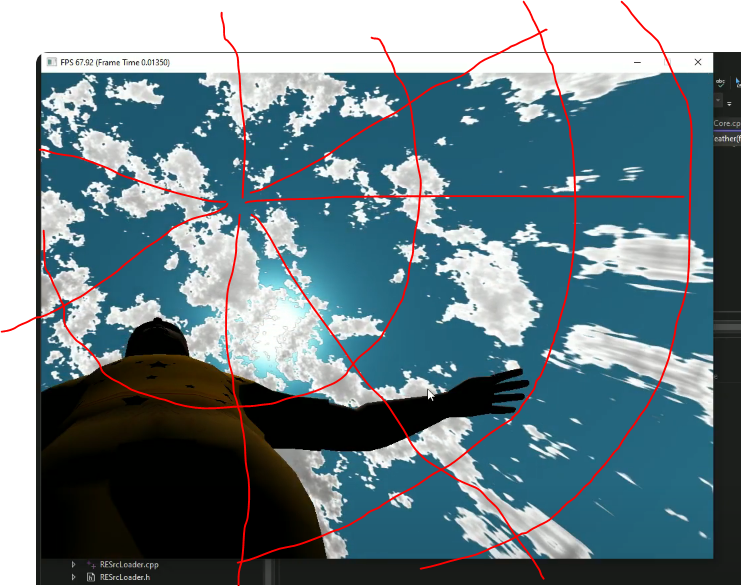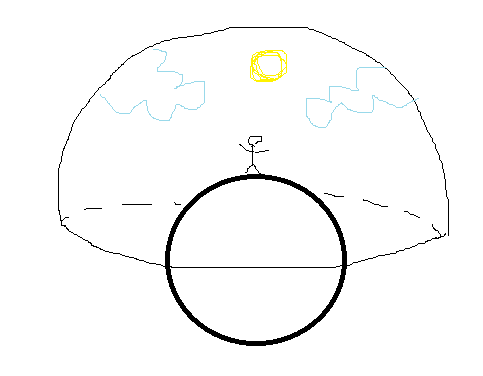Hi, I'm trying to generate clouds based on The Real-Time Volumetric Cloudscapes of Horizon Zero Dawn. But I'm facing the problem on how to sample Shape(3D tex, 128*128*128), Detail(3D tex, 32*32*32) and Weathermap (2D tex, 1024*1024) correctly. Here's my implementation, could anyone give me hints to resolve it?
float3 GetUVWMap1(in float3 worldPos)
{
float3 uvw;
float radius = length(worldPos)-InnerRadius;
float theta = atan2(worldPos.y, worldPos.x); // azimuthal angle
float phi = acos(worldPos.z / radius); // polar angle
// Normalize spherical coordinates to [0, 1] range for UVW mapping
float u = theta / (2.0f * PI);
float v = phi / (PI * 0.5f);
float w = radius / (inMinMaxCloudLayer.y - inMinMaxCloudLayer.x);
return float3(u, v, w);
}
float2 GetUVMap2(in float3 worldPos)
{
float3 pos = normalize(worldPos - float3(g_sceneCB.CameraPos.x, -(g_sceneCB.CameraPos.y + InnerRadius), g_sceneCB.CameraPos.z));
float r = atan2(sqrt(pos.x * pos.x + pos.z * pos.z), pos.y) / (PI);
float phi = atan2(pos.z, pos.x);
float2 coord = float2(r * cos(phi) + 0.5f, r * sin(phi) + 0.5f);
return coord;
}
float3 SampleWeather(in float3 inPos)
{
float3 wind_direction = float3(1,0,0);
float cloud_speed = 500000;
float cloud_offset = 700000;
float height_fraction = GetHeightFractionForPoint(inPos);
inPos += height_fraction * wind_direction * cloud_offset;
inPos += wind_direction * cloud_speed * g_sceneCB.mTime;
return txWeatherMap.SampleLevel(ssClouds, GetUVMap2(inPos), 0).rgb * 2;
}
float SampleCloudDensity(float3 inP, float3 inWeatherData)
{
float3 coord = GetUVWMap1(inP);
float4 low_frequency_noises = txShape.SampleLevel(ssClouds, coord, 0).rgba;
float low_freq_fbm = (low_frequency_noises.g * 0.625f) + (low_frequency_noises.b * 0.25f) + (low_frequency_noises.a * 0.125f);
float base_cloud = Remap(low_frequency_noises.r, -(1.0f - low_freq_fbm), 1.0f, 0.0f, 1.0f);
float density_height_gradient = GetDensityHeightGradientForPoint(inP, inWeatherData);
base_cloud *= density_height_gradient;
float cloud_coverage = inWeatherData.r;
float base_cloud_with_coverage = Remap(base_cloud, cloud_coverage, 1.0f, 0.0f, 1.0f);
base_cloud_with_coverage *= cloud_coverage;
float3 high_frequency_noises = txDetail.SampleLevel(ssClouds, coord * 0.1f, 0).rgb;
float high_freq_fbm = (high_frequency_noises.r * 0.625f) + (high_frequency_noises.g * 0.25f) + (high_frequency_noises.b * 0.125f);
float height_fraction = GetHeightFractionForPoint(inP);
float high_freq_noise_modifier = lerp(high_freq_fbm, (1.0f - high_freq_fbm), saturate(height_fraction * 10.0f));
float final_cloud = Remap(base_cloud_with_coverage, high_freq_noise_modifier * 0.2f, 1.0f, 0.0f, 1.0f);
return saturate(final_cloud);
}
NO MATTER WHAT I DO, THIS DISTORTION HAPPENS












